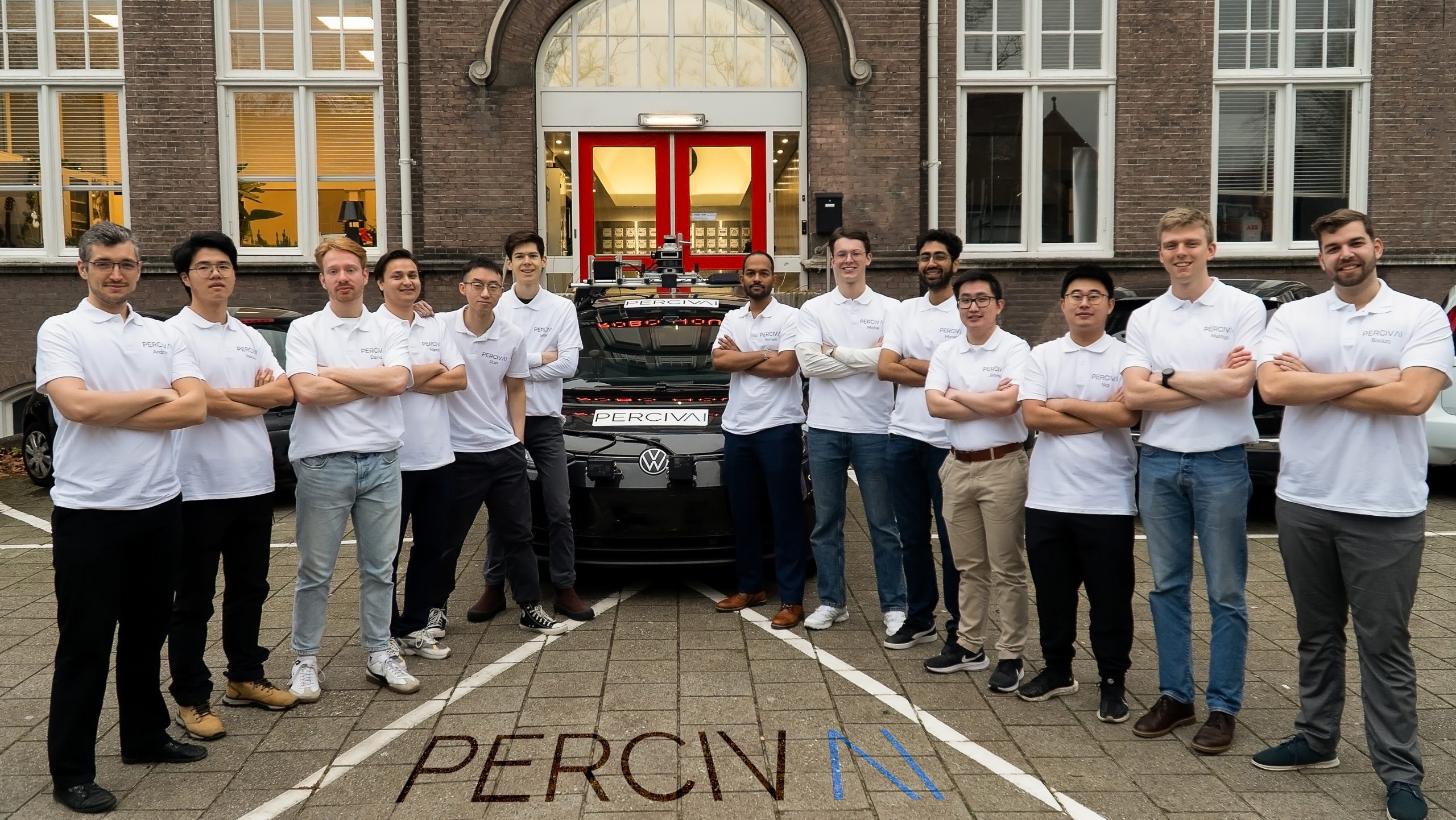By combining AI and radar, Perciv AI has found a way to match the performance of advanced traffic systems at just a fraction of the cost. This breakthrough opens the door to new opportunities for autonomous vehicles, robots, and drones – a potential recognised by investors.
Perciv AI's founders: Dr Andras Palffy, Srimannarayana Baratam, and Balazs Szekeres. (Photo: Perciv AI)
Two years ago, Delta interviewed Srimannarayana Baratam, the first robotics engineer to graduate (cum laude) from TU Delft. Back then, he had a clear mission: to make traffic in his home country, India, safer using an affordable radar detection system. Now he has secured a EUR 2.5 million investment.
Shortly after graduating, he co-founded the Perciv AI tech start-up with his thesis supervisor, Dr Andras Palffy, and fellow student Balazs Szekeres. The mission has remained largely the same: democratising automated systems through AI for radars. Today, Balazs Szekeres serves as Managing Director, Andras Palffy as Director of Technology, and Srimannarayana Baratam as Director of Operations. By the end of 2024, there were about 15 people working at their office in the RoboHouse building.

Radar love
There are already advanced robotic perception systems, but they typically rely on LIDAR (LIght Detection And Ranging), Baratam explains. This technology uses laser light to measure distances and generate detailed 3D maps (point clouds) of the surroundings. However, with prices running into the hundreds to thousands of euros, LIDAR is relatively expensive. In contrast, radar sensors cost just a few handfuls of euros and are already built into most modern cars.
“Radar is a robust, weatherproof, and affordable sensor,” says Baratam. It can measure the distance to a vehicle ahead and its speed to help regulate user vehicle speed accordingly – the foundation for traffic assistants or ‘adaptive cruise control’. For drivers, it feels like the car is driving itself. But for engineers like Baratam, it’s only the beginning. He knows, for instance, that the radar confusion caused by reflected signals in current solutions can cause cars to suddenly brake when entering a tunnel (‘phantom braking’). In urban environments, radar sensors add little value today beyond providing beeping parking alerts.
Seeing better
“Radars today don’t distinguish between a pedestrian and a lamppost. But this is essential in an autonomous system,” says Baratam, pointing out radar’s limitations. To overcome this, Perciv AI uses artificial intelligence to extract more information from radar signals. What manufacturers are trying to achieve with Lidar, Perciv AI delivers with their software applied to low-cost radar sensors.
“We’re a radar software company,” Baratam summarises. He expects early applications of AI enhanced radars to be used in industrial environments even before on public roads. These could include drones, agricultural tractors, warehouses with forklift trucks, or autonomous carts at airports. Licensing these solutions will generate revenue to fund further development in the automotive industry.
In collaboration with parts suppliers and car manufacturers, the company aims to position its AI-driven radar approach as the leading perception solution for autonomous mobility systems within two years. This should pave the way for affordable and widely adopted driver-assistance systems that make traffic safer – not just in Delft or California, but especially in the chaotic traffic of India, Lebanon, or Malaysia.
Investors
On 14 December 2024, the TU Delft-based Perciv AI tech start-up announced that three investors – DayOne Capital, Keen Venture Partners, and Vinci Venture Capital – have collectively invested EUR 2.5 million in the development of AI powered radar perception software.
- To the Perciv AI website
Do you have a question or comment about this article?
j.w.wassink@tudelft.nl


Comments are closed.